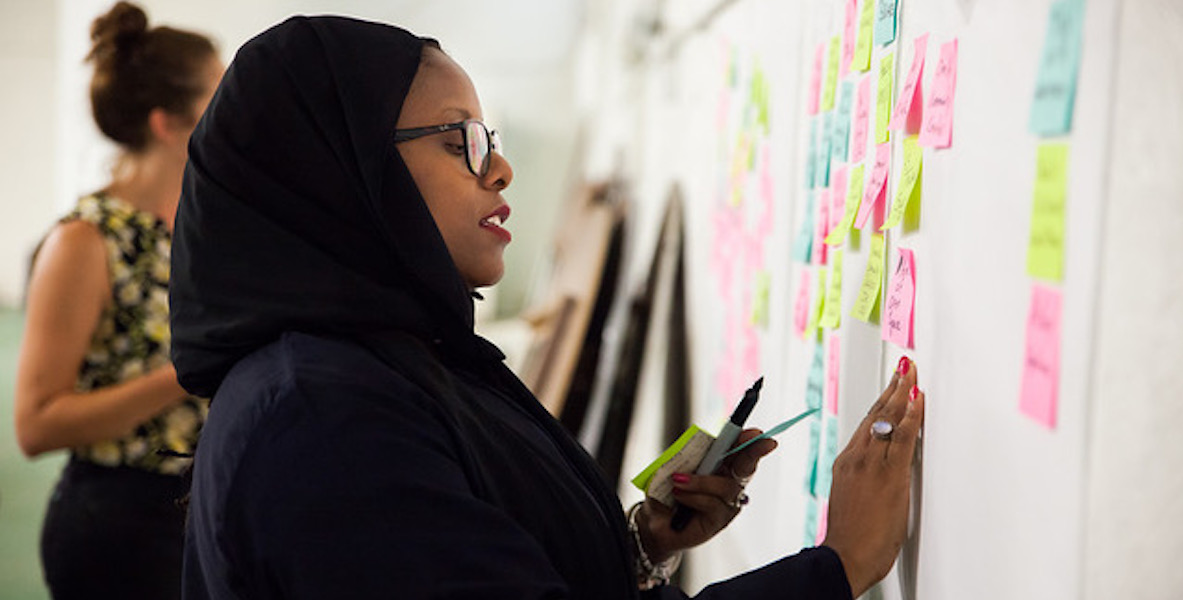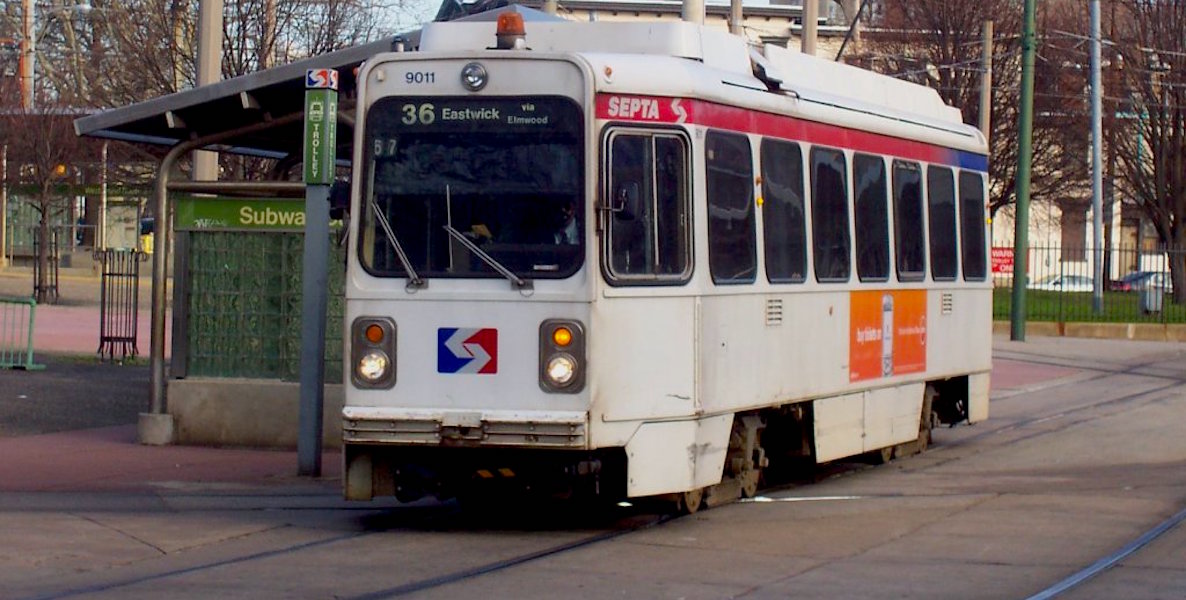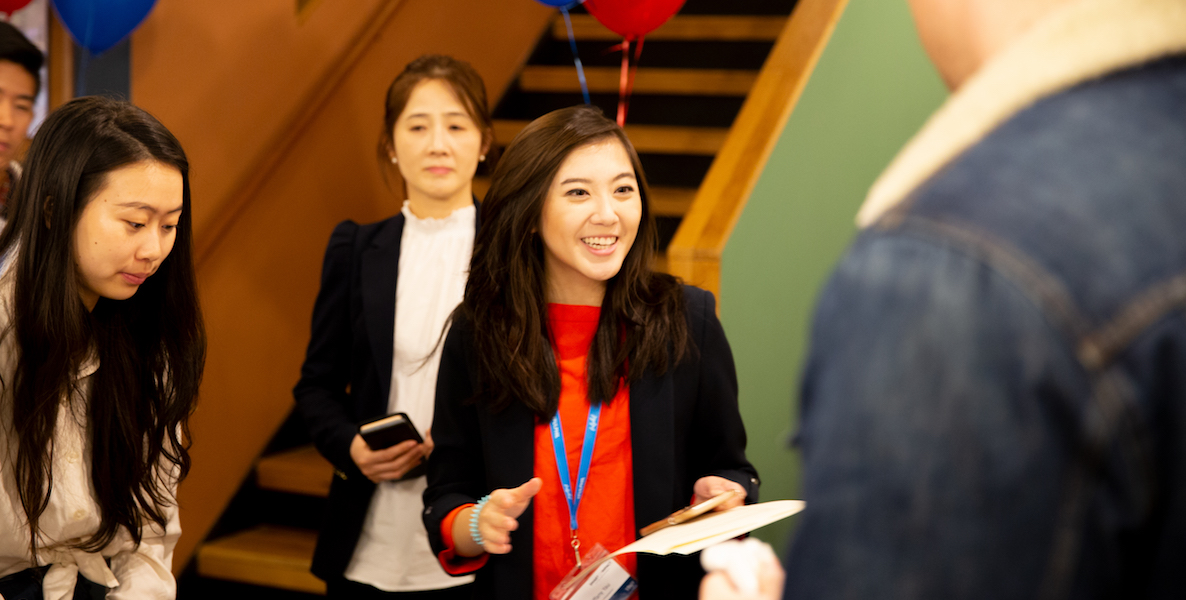When Tiffany Yau was an undergraduate at the University of Pennsylvania she witnessed the same pattern over and over again: Some of the brightest students from around the country would come to Penn, call Philadelphia their home for four years, and with their degree in hand would almost immediately scatter across the country to embark on their careers.
Engineers would go to Silicon Valley. The business-types to Wall Street. Many went to New York or D.C. In fact, of Penn graduates, according to a recent Wall Street Journal study, only about a quarter remain in Philly, joined by just over half of Drexel and La Salle grads, and over 60 percent from Temple and St. Joe’s.
“Philly is a place where a lot of people come for an education, but they leave and they don’t really give anything back to it,” Yau says. “There is something not quite right with that, you know?”
Watching this mass exodus was one of the reasons Yau launched her own company, Fulphil, in November of 2017. A mashup of the words “fulfillment” and “Philadelphia,” Fulphil is a local nonprofit that specifically targets the city’s university students, aiming to inspire them to start their own companies that solve the city’s most pressing social problems through social entrepreneurship.
“Philly is a place where a lot of people come for an education, but they leave and they don’t really give anything back to it,” Yau says. “There is something not quite right with that, you know?”
In recent years, Philadelphia has become a formidable trailblazer of the impact economy, a phrase that references businesses that have a triple bottom line—people, profits and planet. Think guitar makers who source from sustainable woods or a clothing chain that cleans oceans. The first to offer special tax credits for sustainable businesses, the city is home to B Lab and the B Corp movement, as well as a cast of socially-minded enterprises like ImpactPHL and GoodCompany Ventures, among others.
Fulphil joins this group at what could be a changing moment for Philadelphia. The most recent annual report from Campus Philly, a local nonprofit that focuses on keeping graduates in Philadelphia, found that 67 percent of current students think they’ll stay here for at least some time after they graduate—up from 58 percent in 2010. At the same time, the city has experienced better than average job growth, including in some tech fields, and it is growing, in part because of the influx of young people moving to the city over the last decade.
And young people are increasingly attracted to companies that are focused on more than the bottom line. A recent Deloitte survey of millennials and Gen Z found that they are more skeptical of corporation’s motives than in years past, but also more intent on working for and frequenting triple bottom line companies that are working to solve the world’s ills. Yau is hoping to fill that need with Fulphil.
Get involved with FulphilDo Something
“Fulphil has a very clear message that they are trying to do, and that is having others have a very clear sense of what their impact is,” Ryan Eppley, the Director of Partnerships for REC Philly and one of Yau’s mentors, says. “[It’s] helping a lot of these people with a lot of different career options to just reconsider what they are doing in their 20s.”
Fulphil mobilizes students with “campus ambassadors”. Currently, the company has ambassadors embedded in 13 universities in the Greater Philadelphia area who invite speakers, run workshops and hold networking events for students to learn about the social impact economy and how they can start building their own business plans. The ambassador program has reached more than 800 students.
“There are so many untapped, high-potential people here, but there is no one bringing them together for something to better the city,” Yau says.
Yau herself did not always know that she wanted to enter the world of social impact. Hailing from Southern California, Tau was accepted to Penn in 2014 to play golf. She initially followed in the footsteps of her family by studying pre-med, but in her second year of undergraduate studies, she worked as a graphic designer for Penn’s chapter of the Hult Prize, an international competition that brings university students together to solve social problems.
As a third-year student in 2016, Yau rose to become the president of Hult Prize @ Penn. Coinciding with the 2016 presidential election—and the contentious immigration debate that surrounded it—Yau and her colleagues chose to make the immigration crisis as the central theme of the year. Under her leadership, the Penn chapter worked to cultivate ideas regarding the immigration crisis and fundraise for teams to pitch their idea at regional, national, and international- level competitions.
But the highlight of the year, she says, was inviting Syrian asylum seekers taking refuge in Philadelphia to come and talk about their experience escaping persecution back home. “I studied sociology, and there are all these statistics and numbers, but listening to people’s stories it became very real,” Yau says. “That was one of the factors that made me want to pursue social impact.”
Yau’s work with Hult Prize @ Penn brought her overseas to the Hultz Prize’s headquarters in London for an “impact retreat,” where she was able to meet the CEO, Ahmad Ashkar. Through conversations with Askhar, Yau learned that the prize was looking for ways to expand their reach in the United States, and Yau pitched forming a Hult Prize within the Ivy League conference.
Currently, Fulphil has ambassadors embedded in 13 universities in the area, who have reached more than 800 students.
Ashkar loved the idea and hired Yau to form Hult Prize Ivy. Launched during her senior year, it brought the chapters of the Hult Prize in each of the Ivy League universities together to work on solutions to some of the world’s problems – such as creating new energy sources or youth unemployment.
“I realized that it is really hard to bring together students in this way, because these are problems that we are not seeing every day, as opposed to those in more developing countries,” she says. “What if we had a more localized impact initiative?”
Each year, Fulphil crafts its programming on a central theme which is based on the goals and objectives of the Mayor of Philadelphia’s. Currently, Mayor Jim Kenney’s goals include developing a diverse workforce, improving educational opportunities, operating government efficiently and improving economic opportunities. For 2019, Fulphil’s is turning its attention to the mayor’s first goal: public safety.
Articles by James MeadowsRead More
Yau and her colleagues will craft a comprehensive packet that will outline the issue of public safety and what local government and nonprofits are doing to solve it. This packet will then be distributed to their campus ambassadors, who will use it to create programming.
“Fulphil helps people really believe that they have a voice and that they are part of a bigger impact movement,” Joseph Lee, Fulphil’s Regional Program Manager, says. “It’s a collective effort amongst the younger generation to take up and take charge.”
While Fulphil does not provide any sort of seed funding for student businesses, Yau says it serves as the middleman between universities and the city’s many impact businesses. If a group of students comes forward with a substantive business plan, Fulphil connects them with industry leaders in the area to help their plan get off the group.
Currently, according to Yau, Fulphil has raised over $70,000 of funding—mainly from large individual donations. Going forward, the group is looking for sponsorships, and is applying for grant funding from the University of Pennsylvania and the Philadelphia area.
Fulphil has already helped launch two student-run ventures: ENGAGEathon, a software platform that tracks and rewards community outreach; and Instahub, an affordable home sensor that tracks when people are home in order to reduce household electrical consumption. Both of the companies are still in the process of launching, but Fulfill is helping to connect both of the businesses with business leaders in Philly and to recruit eager college students interested in working at a start-up.
Last month, Fulphil also co-hosted a “Smart Impact” competition with WeWork and Red Bull, where 31 college teams came to pitch a business plan that would help solve a pressing social problem in Philadelphia. The teams were divided by non-profit and profit designations and one team in each category won a free membership to the WeWork co-working space and pro bono legal services from the Drexel’s Entrepreneurial Law Clinic.
One team traveled all the way from the University of Pittsburgh to pitch their idea of helping families connect with STEM education opportunities.“They drove out six or seven hours and spent the entire weekend just to pitch for one minute,” Yau recalls.
Not many sociology majors start their own business straight out of college. And it has not been easy, despite help Yau has received from mentors, both live and online. (“YouTube is the best professor,” she notes). Yau rattles off the many hurdles she faces: organizing people, procuring funds, and getting their name out. As a young woman, she also struggles with being taken seriously when talking to some of the city’s biggest stakeholders. But she is undaunted.
“Someone once told me that being a startup is like jumping off a cliff and building a plane on the way down,” she laughs. “But then it’s really exciting to see the outcome.”
Photo: Kara Zhang






